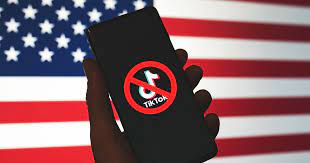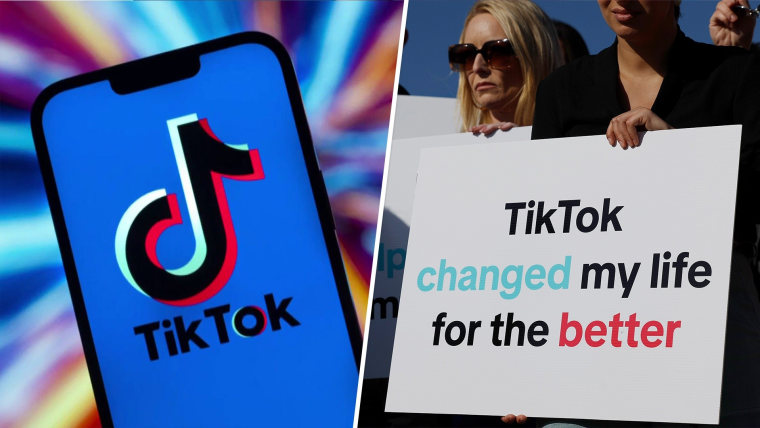
WASHINGTON — The House-passed bill that could ban TikTok faces an uncertain future in the Senate, where there is less urgency to act and senators have different theories about how to address national security concerns about the app’s China-based owner.
Sen. John Cornyn, R-Texas, said the Senate is unlikely to accept the House bill as is and called for an open amendment process to make changes to it.
“I think it’s more than likely that we will take up their bill and amend it and say we’ve come up with some areas where we think it needs improvement,” Cornyn said. “My concern is that if you try to deal with this by name, you’re playing a game of whack-a-mole, because what’s TikTok today, next week it’s TokTik or TicTak or whatever.”
He added that the Senate won’t act as quickly as the House did.
“We do things slowly over here, and this takes time,” Cornyn said.
The chamber will require 60 votes to break a filibuster, and senators have a range of concerns. Many say the national security threat posed by TikTok is urgent, and some are willing to support the House bill. Others want a broader approach that encompasses various foreign-controlled apps rather than targeting one company. Yet others worry that China will seek to retaliate against the U.S.

Senate Majority Leader Chuck Schumer, D-N.Y., was noncommittal on whether the Senate would vote on the House bill, telling reporters Tuesday, “I’ll have to consult, and intend to consult, with my relevant committee chairmen to see what their views would be.”
Senate Intelligence Committee Chairman Mark Warner, D-Va., and leading Republican Marco Rubio of Florida said in a joint statement Wednesday that they were “encouraged” by the bipartisan House vote, adding that they’ll work together “to get this bill passed through the Senate and signed into law.”
Another key chair, Sen. Maria Cantwell, D-Wash., who leads the Senate Commerce Committee, said, “I’m not sure what we’ll do yet, got to talk to lots of people.”
“The whole point here is you have a dilemma,” Cantwell said. “You want free speech, but you also want the United States to have some ability to protect U.S. citizens or U.S. military from foreign actors who might be deleterious in what they would be using as a tool of communication. So we want to get a tool to those people, whether that’s the Department of Commerce or DOJ, so that they can sustain those actions.”
Senate Majority Whip Dick Durbin, D-Ill., the Judiciary Committee chair, acknowledged that a ban on TikTok may not be politically beneficial for President Joe Biden’s re-election in November. The Biden campaign joined TikTok last month to meet voters “where they are,” though the president has said he would sign the ban legislation if it passes both chambers of Congress.
“Cutting out a large group of young voters is not the best-known strategy for re-election,” Durbin said.
“They love TikTok; I know that from my own grandkids and others. And it’s part of their lifestyle and they don’t want to lose it,” he added.
TikTok has warned about “the impact on the economy, 7 million small businesses, and the 170 million Americans who use our service,” calling the bill a “ban” that was “jammed through” the House.
But concerns about China potentially accessing U.S. users’ data through TikTok or spreading content on the app to influence Americans’ views have resonated with many members of Congress.

Supporters of the bill dismiss the term “ban,” saying that would only happen if TikTok’s China-based owner, ByteDance, refuses to divest the social media app. The bill would create a process for the president to deem a social media app under the control of a foreign adversary as a national security threat and then ban it from U.S. app stores within six months unless the app severs ties with that country.
Sen. Richard Blumenthal, D-Conn., said that he’d be “inclined to support” the House bill and that recent security briefings appear to have moved lawmakers toward restricting TikTok.
“The more we know, the more frightening TikTok becomes,” he said. “Not just in terms of its effect on young people, with the TikTok challenge and all the bad stuff out there, but the data collection and surveillance that’s ongoing. The dark side of the moon is bigger than we thought.”
Sen. Thom Tillis, R-N.C., said he’s worried that China could try to retaliate on U.S. firms.
“I’m sympathetic to what they’re trying to accomplish. I think my main concern is to make sure that we think it through,” Tillis said. “We have to keep in mind that some of the true giants in this space are U.S.-based firms. And we can think about China’s retaliation; that’s one thing I worry about.”
“I’m not overly concerned with TikTok’s well-being because I think China is in their DNA,” Tillis added. “So maybe they should take actions themselves so that we don’t have to.”
Asked about the bill before the House vote, Chinese Foreign Ministry spokesperson Wang Wenbin pushed back on the bill and congressional rhetoric Wednesday, telling reporters that the U.S. lacks “evidence proving TikTok poses a threat to U.S. national security” and accusing Americans of “resorting to bullying tactics when unable to win in fair competition.”
ByteDance is subject to Chinese law that requires it to hand over information if asked by the government, which could include TikTok user data.
Sen. Rand Paul, R-Ky., said he vociferously objects to a TikTok ban, citing First and Fifth Amendment concerns.
“The lengths some in Congress will go to for more authority and control over Americans’ freedom of speech never ceases to amaze me,” Paul tweeted.
He earned a response on X from Elon Musk: “Sounds like there is much more to be concerned about in this bill than who owns TikTok!”
Paul told NBC News he has strong constitutional concerns about the bill.
“180 million Americans use it; you can’t just take away the right to express themselves because you don’t like a company,” he said. “Fifth Amendment says you can’t take someone’s property without due process. And a bill of attainder says you can’t write legislation against one person or one company. Those are pretty strong arguments.”
“It’s based on a hysteria of banning everything China, which I think isn’t good,” he added.
Democratic Sens. Chris Murphy of Connecticut and Ed Markey of Massachusetts, who have both used TikTok, said they’d rather see Congress tackle legislation that protects children online than focus on banning one social media platform.
“Any discussion about TikTok has to involve all the other companies who are targeting all these teenagers and causing the biggest mental health crisis in our country’s history,” Markey said.
TikTok has “some great things for kids and it’s got some really terrible things for kids,” Murphy said. “I would much rather regulate the social media industry to protect kids rather than ban one particular technology.”
Murphy added that he hasn’t made a decision on whether he’ll support the House’s bill, but said he’s open to it.
Sen. John Fetterman, D-Pa., joked with reporters that TikTok has made him spend too much money at Sephora for his daughter, calling the app “trash.”
“I’ve spent hundreds of dollars on Drunk Elephant at Sephora because of my tween, and that’s annoying,” he said.
Sen. Rick Scott, R-Fla., predicted Congress would act on TikTok.
“I think it’ll be banned,” he said. “It’s toxic.”
Like Our Story ? Donate to Support Us, Click Here
You want to share a story with us? Do you want to advertise with us? Do you need publicity/live coverage for product, service, or event? Contact us on WhatsApp +16477721660 or email Adebaconnector@gmail.com








